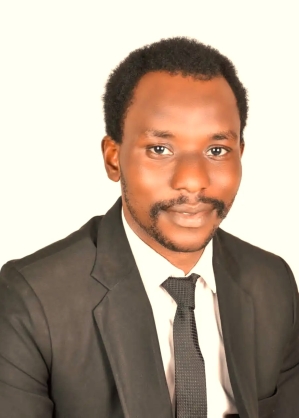
Fulani herdsmen attacked two villages in Kaduna state, Nigeria on Monday (July 7), killing two Christians and wounding three others, after terrorizing villagers in another area in June, local residents said.
In Jema’a County, herdsmen attacked Dogon Fili and Attang villages after 9 p.m., said area resident Sandra Musa.
“One of the Christians killed in Dogon Fili village is Iliya John, 38 – he was shot and killed by the Fulani bandits,” Musa told Christian Daily International-Morning Star News in a text message. “Two other Christians, James Ishaya, 39, and Elisha Mallam, 38, from neighboring Antang village, were also shot and wounded by the bandits. Some commuters who were on transit unfortunately too were attacked by these herdsmen who kidnapped some of them at the scene of the incident.”
In a previous attack in Kajuru County on June 28, a community leader of predominantly Christian Bauda village was kidnapped, an area resident said.
“Bauda community leader Obadiah Iguda, 48, was kidnapped by armed men we believe to be Fulani herdsmen,” said Peter Stephen. “He was kidnapped on 28 June at about 1 a.m. in his house as he was sleeping.”
Stephen Maikori, a community leader and overseer of Kufana District in Kajuru County, confirmed that the abduction took place around 1 a.m. on June 28.
“This senseless act of violence has further deepened the atmosphere of insecurity and fear among the Christian residents of Bauda and its surrounding communities,” Maikori said. “The Kufana District Council appeals for immediate and sustained security action by the Nigerian government to protect Christians and bring to an end further attacks in our communities.”
In Kajuru County’s predominantly Christian Unguwar Sarki village, herdsmen chased down and executed a community leader in early June, said Alhaji Ishaya Onnusim, chairman of the Ugom Progressive Union.
“At approximately 12 noon, Fulani terrorists invaded our community in broad daylight,” Onnusim said in a press statement. “The attack was carefully planned and viciously executed. The terrorists arrived in large numbers, this time riding on motorbikes – each motorbike carrying a rider and a passenger – clearly a tactical move to ensure mobility, speed and efficient coordination of their assault.”
Upon arrival, without warning or provocation, they began shooting at anyone they saw, he said. Panicked men, women and children ran in different directions at the sound of gunfire.
“One of our beloved community members, Mr. Stephen Alhassan, tragically lost his life during the attack,” Onnusim said. “Mr. Stephen began to run, but the terrorists spotted him and chased after him. They pursued him relentlessly on their motorbike, shooting at him as he fled.”
Realizing he was gaining distance and might escape, they fired a shot that struck him in the leg, he said.
“He fell to the ground, defenseless. The terrorists then approached him, placed a gun to his forehead, and brutally executed him by blowing his head to pieces,” Onnusim said. “Mr. Stephen Alhassan was approximately 57 years old. He was a father, a farmer and a valued member of our community. This is just one tragic example of the trauma we face almost weekly.”
Such attacks have become an almost routine occurrence, leaving villagers in a constant state of fear, trauma and uncertainty, he added.
“Because of this persistent threat, our people have had no choice but to live in a state of alertness,” Onnusim said. “It is farming season, and many of our villagers, in a bid to survive, had gone to their farms located deep in the bushes. Farming is their only source of livelihood, and yet it has become a dangerous task – one that could cost them their lives.”
The people of Ugom community live in unbearable fear and hardship, he added.
“We can no longer sleep in our homes peacefully,” he said. “We cannot go to the markets to trade or buy food. We cannot go to our farms, which are our only means of survival. Our children cannot go to school. Our elderly are helpless. Our women and girls are vulnerable.”
Their lives are at risk every day, he said.
“The situation in our community is terrible and horrifying,” Onnusim said. “We are living in conditions that no human being should have to endure. Despite repeated reports, cries for help, and appeals to authorities, our pain continues to go unheard.”
He appealed to the Nigerian government, Kaduna state officials, security agencies, human rights organizations, Non-Governmental Organizations, religious leaders and international bodies to come to their aid before more lives are lost.
“We are in urgent need of security, humanitarian support, and protection,” he said. “Our community is being destroyed, our people are being hunted, and our future is being stolen. Let the world not wait until Christians in Ugom are wiped off the map before something is done. This is a call for urgent intervention.”
Numbering in the millions across Nigeria and the Sahel, predominantly Muslim Fulani comprise hundreds of clans of many different lineages who do not hold extremist views, but some Fulani do adhere to radical Islamist ideology, the United Kingdom’s All-Party Parliamentary Group for International Freedom or Belief (APPG) noted in a 2020 report.
“They adopt a comparable strategy to Boko Haram and ISWAP and demonstrate a clear intent to target Christians and potent symbols of Christian identity,” the APPG report states.
Christian leaders in Nigeria have said they believe herdsmen attacks on Christian communities in Nigeria’s Middle Belt are inspired by their desire to forcefully take over Christians’ lands and impose Islam as desertification has made it difficult for them to sustain their herds.
Nigeria remained among the most dangerous places on earth for Christians, according to Open Doors’ 2025 World Watch List of the countries where it is most difficult to be a Christian. Of the 4,476 Christians killed for their faith worldwide during the reporting period, 3,100 (69 percent) were in Nigeria, according to the WWL.
“The measure of anti-Christian violence in the country is already at the maximum possible under World Watch List methodology,” the report stated.
In the country’s North-Central zone, where Christians are more common than they are in the North-East and North-West, Islamic extremist Fulani militia attack farming communities, killing many hundreds, Christians above all, according to the report. Jihadist groups such as Boko Haram and the splinter group Islamic State in West Africa Province (ISWAP), among others, are also active in the country’s northern states, where federal government control is scant and Christians and their communities continue to be the targets of raids, sexual violence, and roadblock killings, according to the report. Abductions for ransom have increased considerably in recent years.
The violence has spread to southern states, and a new jihadist terror group, Lakurawa, has emerged in the northwest, armed with advanced weaponry and a radical Islamist agenda, the WWL noted. Lakurawa is affiliated with the expansionist Al-Qaeda insurgency Jama’a Nusrat ul-Islam wa al-Muslimin, or JNIM, originating in Mali.
Nigeria ranked seventh on the 2025 WWL list of the 50 worst countries for Christians.





